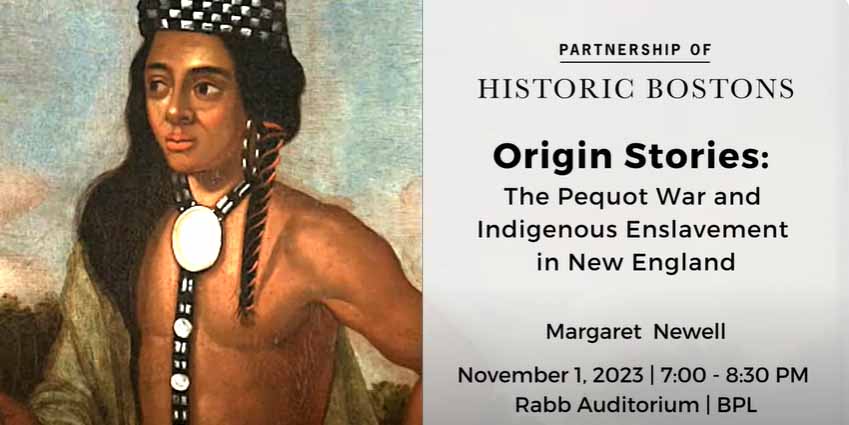
This important talk by award-winning historian Margaret Newell revealed the origins of New England slavery in the Pequot War – a violent conflict from the first years of the Massachusetts colony when the colonists took the first step to establish enslavement of both Indigenous and African peoples. Click here to listen to the 104-minute presentation by the Partnership for Historic Bostons on November 1, 2023,
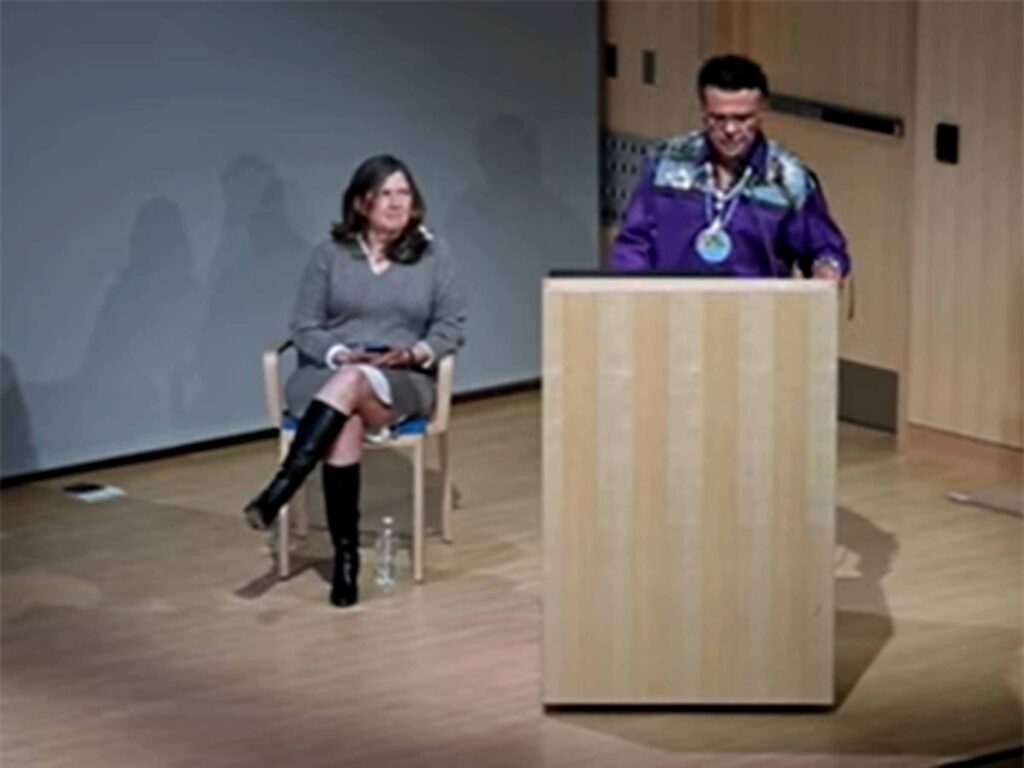
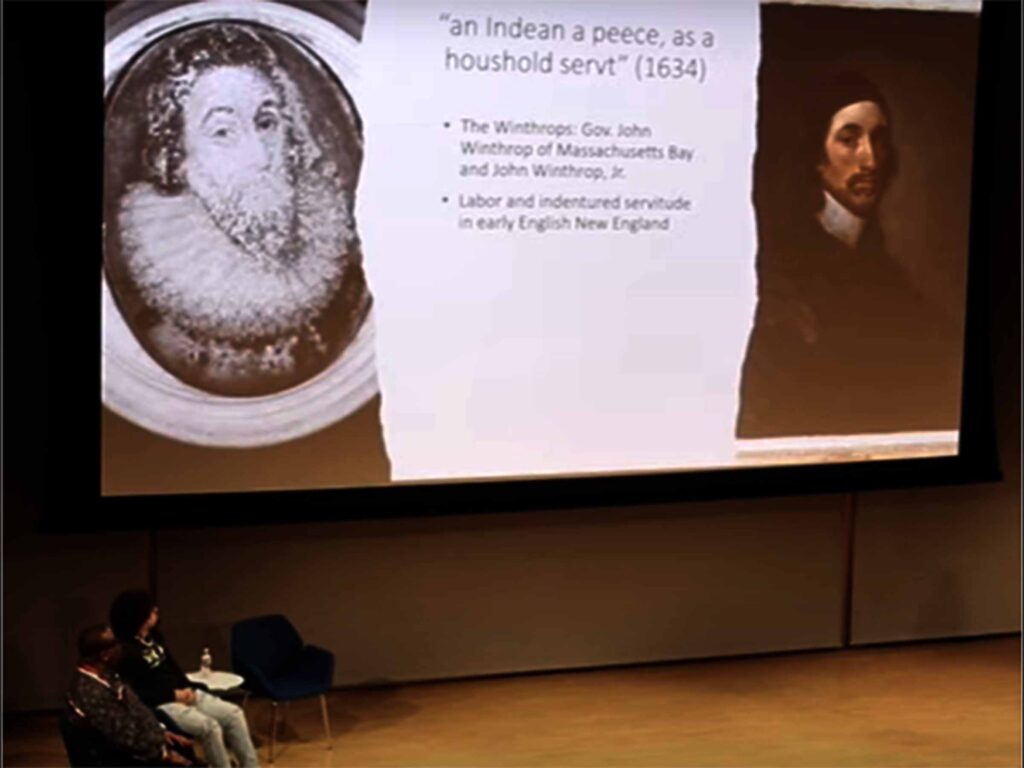
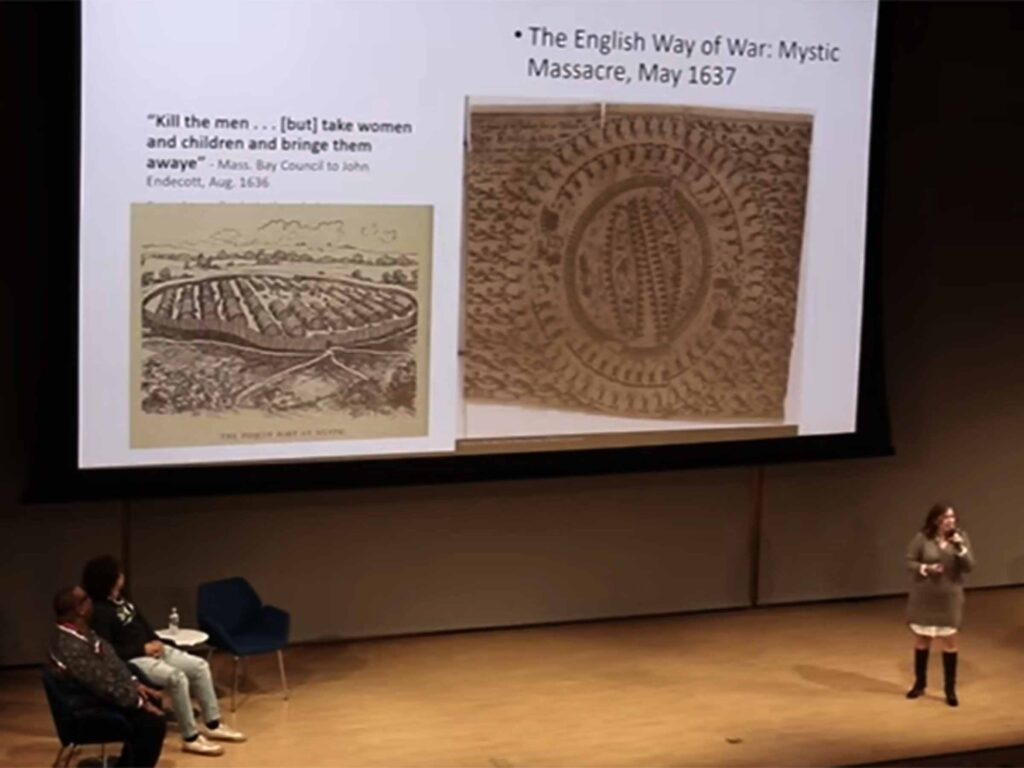
(Above, left) Dr. Newell is introduced by Lance Young of the Nemasket Nation. The Pequot War shaped the law and practice of slavery in New England in fundamental ways. English adventurers/explorers kidnapped and trafficked Native inhabitants of New England before 1630. But the practice moved into a new, much more intensive stage in the summer of 1637 with the outbreak of the Pequot War, the first major conflict between English and Indigenous peoples in the region.
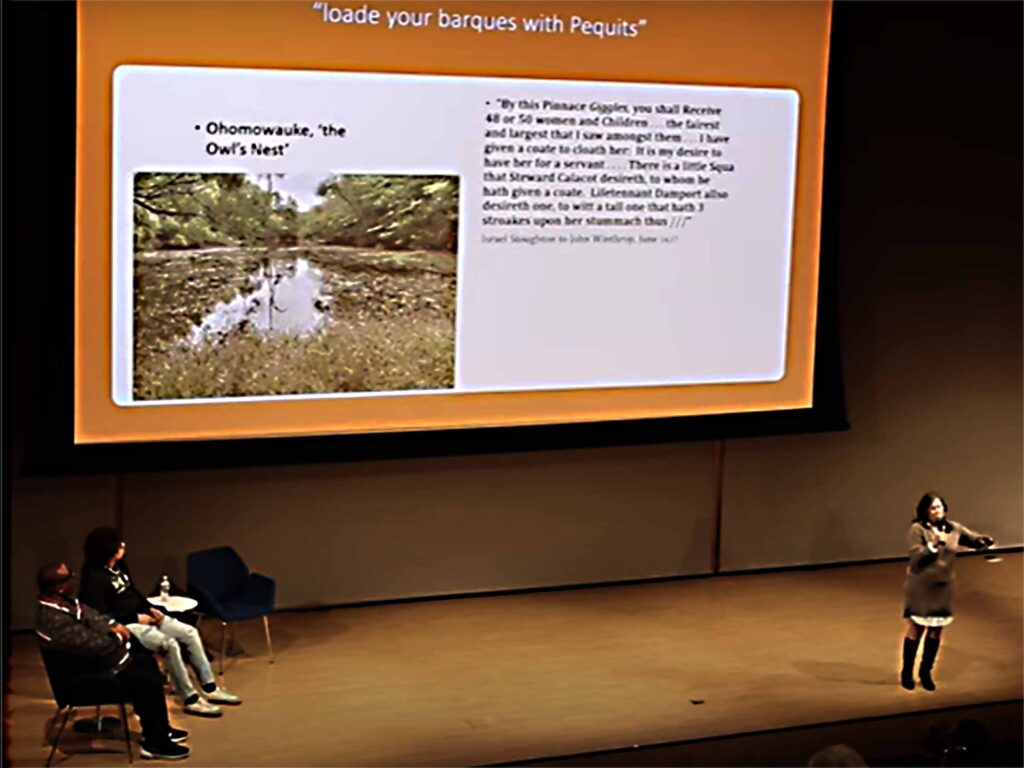
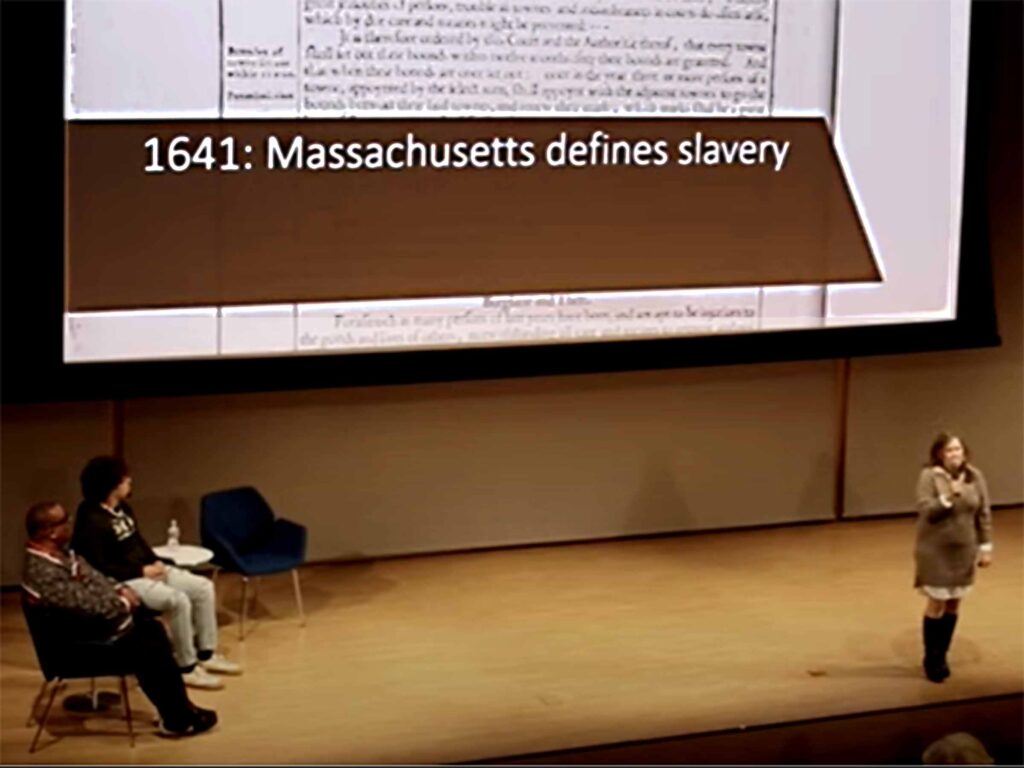
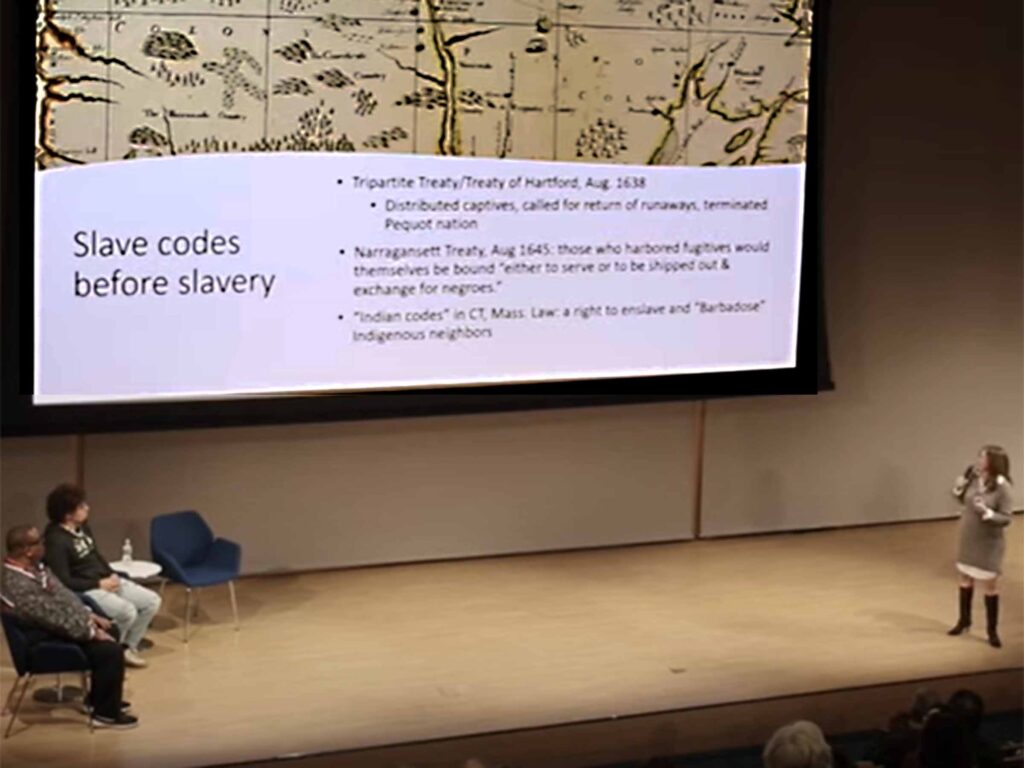
Many scholars have explored the causes and consequences of the Pequot War but, as documented in Margaret Newell’s groundbreaking book, Brethren by Nature, enslavement of Indians quickly became a key goal of that war – one reflected in military orders, troop movements, the treatment of civilian non-combatants, and in the treaty that ended the conflict. This makes the Pequot War a crucial event in the history of New England enslavement, affecting Indigenous peoples across the region and shaping African slavery. Indeed, and contrary to common belief, Indigenous enslavement became ubiquitous.
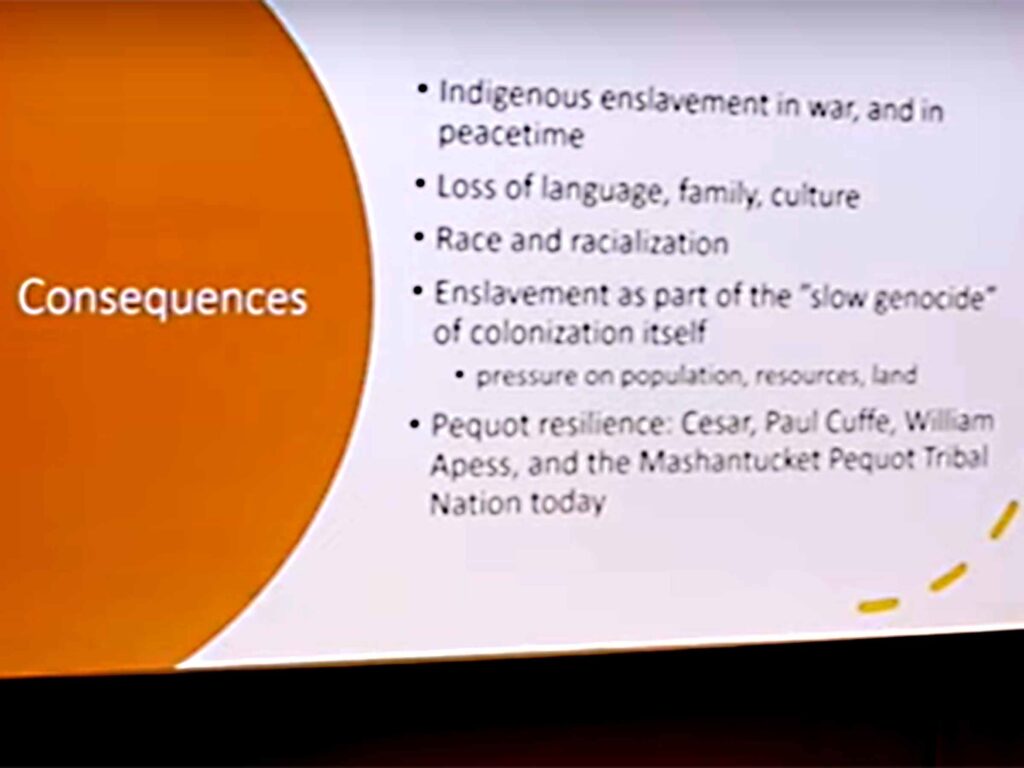
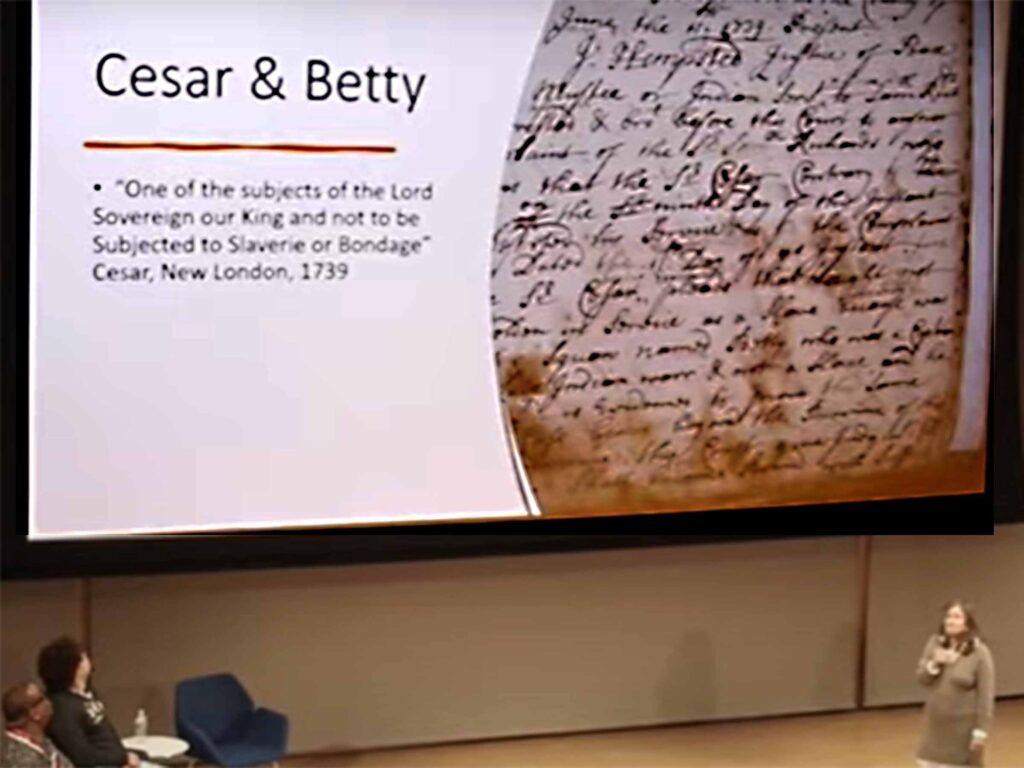
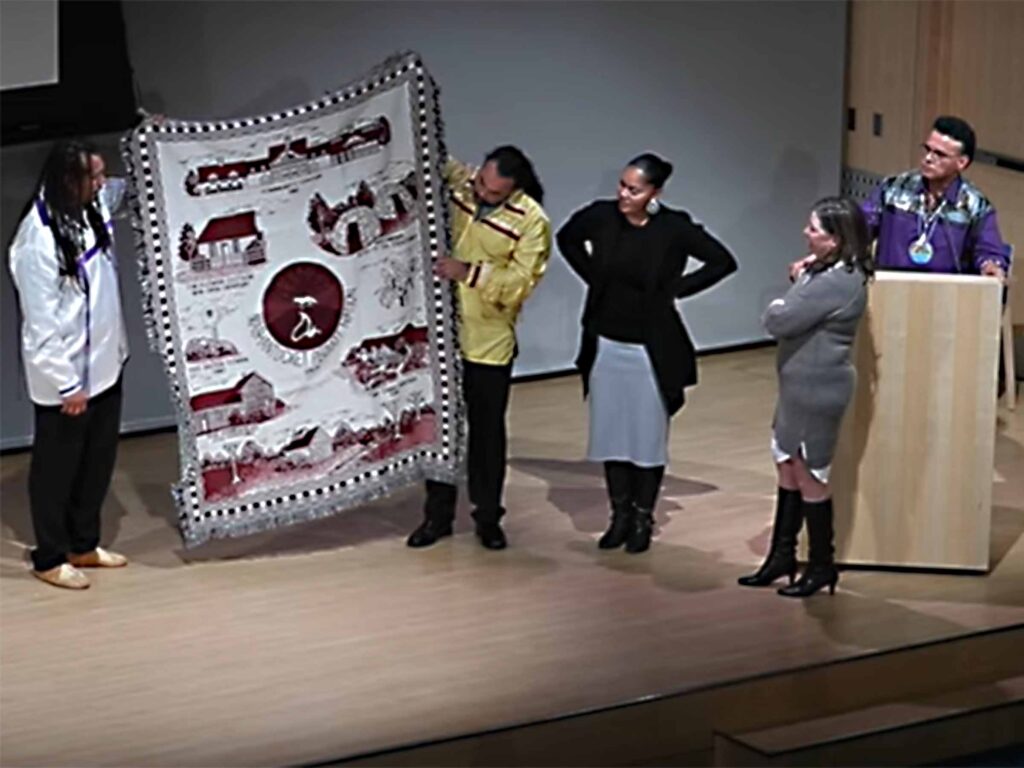
Colonial governments distributed Pequot captives to ministers, soldiers, and magistrates. The governor’s “Mansion House” and nearby Cole’s Tavern in Boston housed Pequot slaves, as did many harbor islands. Boston and Salem authorities punished Native runaways, built a slave pen, and used Pequot men and boys as a commodity to enter the lucrative Caribbean trade. Massachusetts Bay’s 1641 legal code, drafted in the wake of the war, included a law enabling slavery and legalized enslavement of captives. Individual colonies adopted “slave codes before slavery” that affected both free and enslaved Indians, creating a constant threat of enslavement. The Pequot War demonstrated a destructive side of colonial settlers’ actions that many Native American groups experienced, one that included displacement, violence, family separation, and theft of labor and resources. (Above, right) Mashantucket Pequot Tribal Nation leaders present Newell with a gift of a blanket following her talk.
